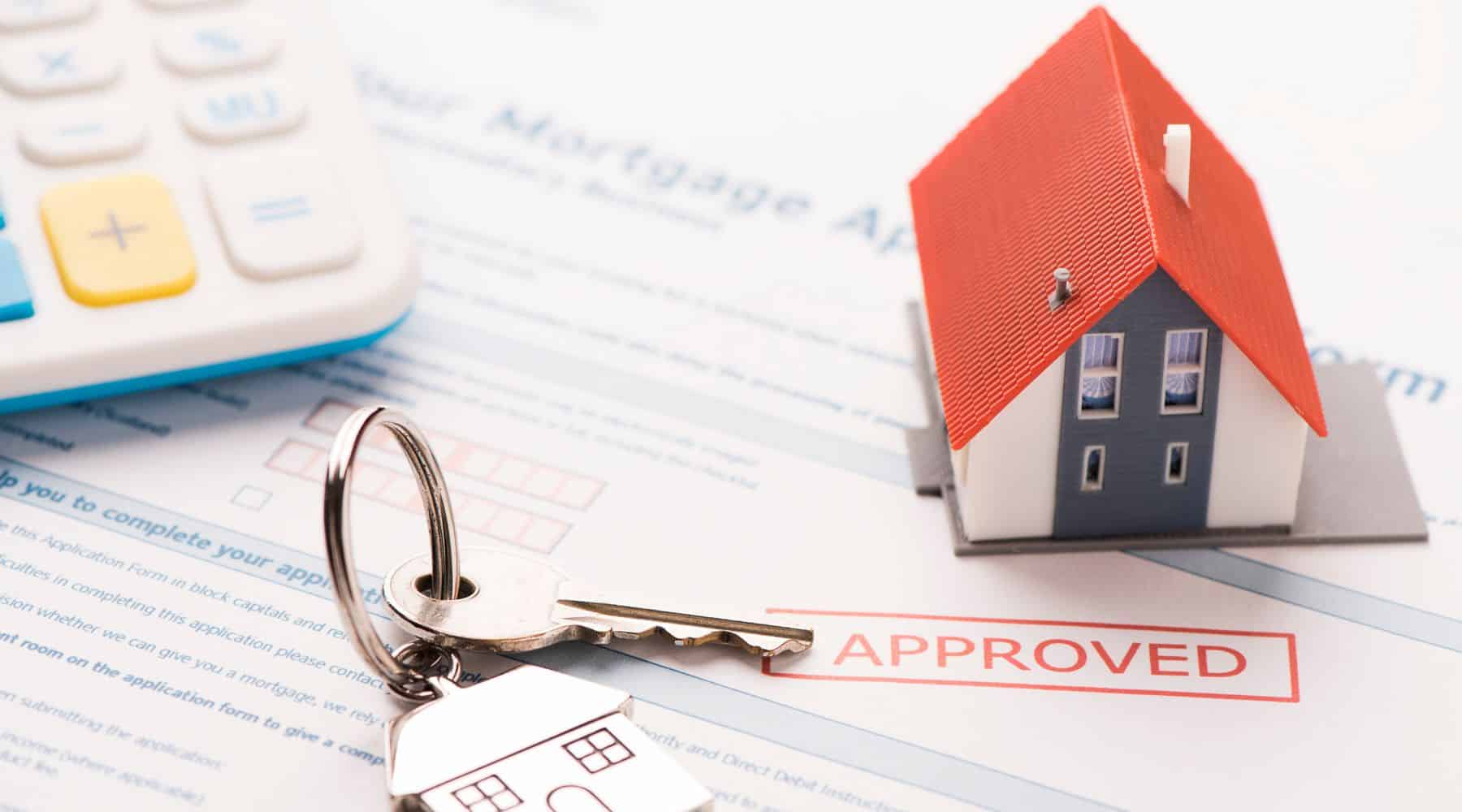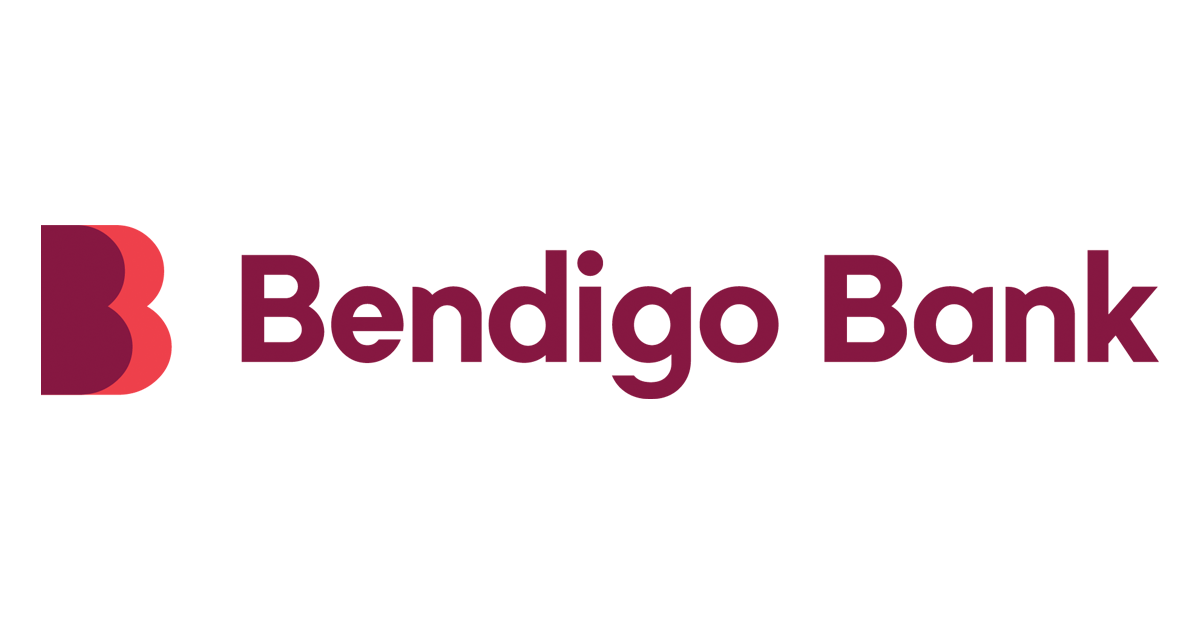How do home loans work?
There’s a fair bit that makes home loans tick. To understand how they work, it’s important to ask a few key questions:
How long are home loan terms?
Most home loans in Australia range from 25 to 30 years as standard. However, terms can vary significantly depending on your financial situation, loan amount and lender, with some loans available for as little as one to five years, especially in cases of refinancing or small balances.
A longer loan term spreads your repayments out into smaller instalments, making them more manageable month to month. However, this also means paying more in interest over the life of the loan. On the other hand, a shorter loan term increases your repayments but reduces your overall interest cost, potentially saving you hundreds of thousands of dollars if you can shoulder the higher repayments.
Here’s an example of the difference a shorter loan term can make:
| Loan amount | Interest rate | Loan term | Monthly repayment | Total interest paid |
|---|---|---|---|---|
| $800,000 | 5.5% p.a. | 30 years | $4,542 | $835,232 |
| $800,000 | 5.5% p.a. | 25 years | $4,913 | $673,810 |
| Figures are estimates calculated using Savvy’s home loan repayment calculator. These figures do not factor in fees and other additional costs associated with purchasing a property. | ||||
By cutting five years off your term, you’d pay $371 more each month but save over $161,000 in interest. However, it’s important to choose a loan term that aligns with what you can comfortably afford in regular repayments to avoid overstretching your budget.
How do home loan interest rates work?
Each home loan lender sets its own interest rate, based largely on the Reserve Bank of Australia’s (RBA) cash rate, and adjusts it to match your profile. Things like your credit score, savings history, employment record and current assets and debts all play a role in determining your personalised rate.
Interest is charged based on your outstanding loan balance. This means that you’ll gradually pay less interest as you chip away at your debt. It also means that larger deposits, which result in smaller loan sums, can save you a considerable amount overall on the interest you’ll repay on your mortgage.
Even a small difference in interest rates can result in big savings over the life of your loan. For example, here’s the impact of a 0.25% difference on a $500,000 loan over 25 years:
| Interest rate | Monthly repayments | Total interest paid |
|---|---|---|
| 5.25% | $2,996 | $398,872 |
| 5.50% | $3,070 | $421,131 |
| Figures are estimates calculated using Savvy’s home loan repayment calculator. These figures do not factor in fees and other additional costs associated with purchasing a property. | ||
That’s a difference of $22,259 in total interest – just from a 0.25% rate change. This highlights how crucial it is to compare offers to find the most competitive rate you can.
What is LVR?
LVR stands for loan-to-value ratio and refers to how much of your property purchase will be funded by your bank or non-bank lender. This is expressed as a percentage and is calculated simply by dividing your loan amount by the value of your home.
For example, if you buy a $500,000 home and pay a deposit of $100,000, the remaining $400,000 paid by the bank would mean your LVR is 80%.
Typically, the lower your LVR, the better. A lower LVR means you’re borrowing less in relation to the property’s value, which reduces the lender’s risk and could qualify you for more competitive interest rates and better loan terms.
How much do I need as a house deposit?
The amount you’ll need to pay upfront depends on your circumstances. Lenders may allow a deposit as small as 5% of your property purchase price if you have an otherwise strong profile. In many cases, however, lenders prefer a deposit of 20% or more. For a $700,000 house, for example, this would mean a down payment of $140,000.
It’s also important to consider lenders mortgage insurance (LMI). This is a premium you’ll be required to pay with most lenders if your deposit is under 20% and can add thousands or more to your debt.
How much you’ll pay depends on the size of your deposit, the amount you borrow and other factors such as your lender and location. As an example, if you’re buying the $700,000 home mentioned above with a 10% deposit ($70,000), your LMI could be around $12,600 or more.
However, there are ways to avoid paying LMI:
- Apply for a home loan with a guarantor such as a family member who can provide additional security for the lender.
- Use a government-backed program like the 5% Deposit Scheme or Help to Buy Scheme, which allows eligible home buyers to purchase a property with as little as a 2% deposit without paying LMI, helping reduce upfront costs and make home ownership more accessible.
Before you apply for a loan, it’s worth looking at your borrowing power – how much a lender is likely to approve based on your income, expenses and debts. This can help you work out not just what you could borrow, but what you can comfortably afford to repay. Sometimes this means choosing a cheaper property or adjusting your budget so you’re not stretched too thin once you take on a mortgage.
What fees will I have to pay on my home loan?
There’s a range of home loan fees you’ll need to pay throughout the process. These include:
- One-time application fee to cover set-up costs (though these can often be waived)
- Fees paid to your conveyancer to handle the property transfer process
- Property valuation fee to have it formally assessed and valued
- State or territory government fees like mortgage registration fees, transfer fees, title search fees and stamp duty
- Monthly fees paid to your lender throughout your home loan repayment (these may also be waived)
All these can add up, so it’s important to factor them into your calculations when applying for a home loan. Let’s look at an example of someone buying a $650,000 house in Queensland. Their estimated upfront costs might include the following:
| Cost item | Estimated amount |
|---|---|
| Establishment fee | $500 |
| Valuation fee | $300 |
| Legal and conveyancing fees | $1,500 |
| Settlement fee | $200 |
| Mortgage registration fee | $238 |
| Transfer fee | $2,340 |
| Title search fee | $24 |
| Stamp duty | $15,100 |
| Total upfront costs | $20,202 |
| Note: these figures are estimates and costs will vary depending on your lender, location and personal situation. | |
This adds up to more than $20,000 in this scenario – a significant amount that can catch buyers off guard if overlooked. Factoring these costs in early helps you budget accurately and avoid last-minute surprises.
What is stamp duty on a home loan?
Stamp duty, also known as land transfer duty, is a government tax payable when you buy property in Australia. The amount you’ll pay depends on the value of the property and the state or territory in which it’s located, as each jurisdiction sets its own rules and rates.
For example, buying a $600,000 new residential property in Melbourne would typically incur $31,070 in stamp duty.
If you’re a first home buyer and meet certain criteria, you may qualify for a full or partial exemption. In Victoria, for instance, first home buyers pay no stamp duty on properties valued up to $600,000 – meaning you could save the full $31,070 on a home of that value.
However, if you are a foreign purchaser, you may have to pay additional duty. In this situation, the same $600,000 home in Melbourne would be subject to an 8% additional duty, with a bill of $79,070.
What is home loan refinance?
Refinancing a home loan means switching your existing mortgage to a new one – either with your current lender or a different one. This involves taking out a new loan to pay off your old one, often to secure a better interest rate, access home equity, change your loan term or gain additional features and flexibility.
Let’s look at an example of how this works. Say you have a $720,000 home loan with 25 years left to pay and an interest rate of 6.5% p.a. You would be paying:
- Monthly repayments of $4,861
- Total interest over the loan of $738,447
By refinancing to a new loan with a 5.76% p.a. interest rate:
- Monthly repayments drop to $4,534
- Total interest over the loan reduces to $640,175
This would save you $327 per month and $98,272 in interest over the life of the loan.
However, when looking to refinance it’s important to also factor in the costs of switching. These may include discharge fees, break costs if you’re on a fixed rate, application fees for the new loan and ongoing charges. Weighing up these expenses against your potential savings will help you decide whether refinancing is worthwhile.
How do introductory interest rate and cashback deals work?
Introductory rates and cashback offers are common incentives offered by lenders to entice customers either taking out a new mortgage or refinancing. While these offers can be appealing at first glance, it’s important to understand they work – and whether they’re worth it in the long run.
Introductory rates – sometimes called honeymoon rates – offer a temporarily lower interest rate at the beginning of the loan, typically lasting between six and 24 months. This can lead to short-term savings, but once the introductory period ends, your repayments could increase significantly.
For example, you might be offered a 5% interest rate on a $500,000, 25-year home loan for the first 12 months, which would mean monthly repayments of $2,923. After this introductory period ends, the rate reverts to a higher standard variable rate of 6% and your monthly repayments would increase to $3,212 – an increase of $289 per month.
Cashback deals, meanwhile, give you a lump sum payment often between $2,000 and $4,000 once your loan is approved and settled, However, these deals sometimes come with higher ongoing interest rates, which may outweigh the upfront benefit over time.
Fixed vs variable home loans
When choosing a home loan, one of the biggest decisions you’ll need to make is whether to go with a fixed interest rate or a variable interest rate.
Fixed interest rate
A fixed rate home loan allows you to lock in your interest rate for a set period – typically between one and five years. During this time, your repayments stay the same, regardless of any changes to the RBA's cash rate.
With this type of loan, you are protected from any interest rate rises and the fixed repayments can make it easier to budget. However, if rates fall, you’ll miss out on any savings. Fixed rate loans also tend to be less flexible, with restrictions on extra repayments and potential break fees if you refinance early.
Variable interest rate
With a variable rate home loan, your interest rate can change in line with the market, meaning your repayments may go up or down depending on your lender’s adjustments. This gives you the potential to save if rates fall. These loans also offer greater flexibility, often allowing extra repayments, redraw facilities and easier refinancing. However, they’re also less predictable, and your repayments can increase if market rates rise.
To give you a clearer idea of how fixed and variable rates currently compare, here are the standard home loan interest rates/comparison rates offered by the Big Four banks as of 13 February 2025. These apply to new owner-occupier loans with principal and interest repayments and an 80% LVR:
| Bank | Variable (p.a.) | 1-year fixed (p.a.) | 2-year fixed (p.a.) | 3-year fixed (p.a.) |
|---|---|---|---|---|
| ANZ | 6.74% / 6.74% | 5.89% / 6.66% | 5.79% / 6.56% | 6.04% / 6.54% |
| NAB | 6.49% / 6.58% | 5.74% / 6.50% | 5.79% / 6.44% | 5.84% / 6.39% |
| Westpac | 5.49% / 5.50%* | 5.59% / 6.10% | 5.69% / 6.11% | 5.79% / 6.13% |
| CommBank | 5.99% / 6.37% | 6.09% / 8.20% | 5.94% / 7.94% | 6.19% / 7.81% |
| *Westpac’s variable rate includes a life-of-loan discount of 2.09% p.a. | ||||
Should I opt for a fixed or variable rate mortgage?
When deciding between a fixed or variable loan, it’s important to consider the current interest rate environment, your own risk tolerance and the features of the loan. Fixed rates provide stability, as your repayments won’t change during the loan term, making it easier to budget and plan. At present, short-term fixed rates from the Big Four are slightly lower than some variable options, giving borrowers the chance to lock in certainty – but with rates beginning to ease, you could miss out on savings if variable rates fall further.
If you’re comfortable with – and able to handle – market fluctuations, variable rate loans let you take advantage of future reductions if the market continues to move downward. They also tend to offer greater flexibility, with features such as offset accounts or the ability to make extra repayments, which may better suit certain borrowers. On the flip side, they carry the risk of higher repayments if rates rise, so it’s important to weigh potential savings against the possibility of increased costs and consider how much variability you’re prepared to manage.
Keeping an eye on market trends can help you make a more informed choice about whether to take out a fixed interest loan or stay variable. From there, it comes down to how much flexibility you want and which loan features matter most to you.
You may have the option to take out a split rate home loan, which lets you divide your loan between fixed and variable interest rates. This gives you the stability of fixed repayments on one part and the flexibility of variable rates on the other.

Stay ahead of rising mortgage repayments
"If the end of the fixed rate period on your mortgage is approaching, it’s important to see how the market has changed before it ends. As soon as a variable rate is applied to your facility, the repayments could increase drastically and leave you scrambling to adjust your budget. If this is the case, ask a broker to assess your options for a refinance to see how you can stay ahead of any changes in the near future and not be caught out by the “honeymoon rate” trap."

Other home loan options
Choosing a home loan isn’t just about fixed or variable rates. Different loan types and features suit different needs, so it’s important to find the one that works best for you. Here’s a breakdown of the main options:
Loan purpose
- Owner-occupier: these loans are for buying a home to live in. They often come with lower interest rates and more favourable terms.
- Investment: these are loans for purchasing investment properties like rental homes. These may attract higher rates or require a larger deposit.
- Construction: these loans are designed for building a new home or undertaking major renovations. Funds are released in stages as building progresses.
Repayment structure
- Principal and interest: you repay both the loan amount and the interest from day one, gradually paying down your debt.
- Interest-only: you pay only the interest on the loan for a set period, with lower repayments upfront – but the loan balance itself doesn’t shrink.
Specialised options
- Bridging loan: a short-term loan that helps you cover the cost of buying a new home before you’ve sold your existing one.
- Low doc loan: a loan designed for self-employed borrowers or those without standard income documentation, using alternative forms of financial proof.
Loan features
Some loans come with flexible features that can help you save interest or manage your finances more easily:
- Offset account: this is a transaction account linked to your loan that reduces the interest you’re charged by offsetting your loan balance with your savings.
- Redraw facility: this facility lets you access any extra repayments you’ve made on your mortgage if you need them for other purposes.
How to compare home loans
There’s plenty to think about when it comes to comparing your home loan options. Here are some of the key areas to consider:
- Interest rates: the lower the rate, the less interest you’ll pay overall.
- Comparison rates: this is a combined rate that includes your interest and other loan fees. It’s a more accurate reflection of your loan’s total cost.
- Deposit requirements: find out what the minimum required deposit is before you apply. If they want 20% and you only have 10%, you’ll need to look elsewhere.
- Additional payments: if you’re able to pay above the minimum required instalment, you can clear your debt early and save money in the process.
- Loan features: look at whether the loan includes features that give you more control over your repayments or help reduce interest, such as rate lock options, offset accounts or redraw facilities. Just be aware that lenders typically charge extra for these features, so consider whether you’ll actually use it rather than getting it as a nice-to-have.
- Repayment frequency: think about whether you want to pay off your home loan on a weekly, fortnightly or monthly basis.
- Early break fees: consider whether you’ll have to fork out to refinance your loan or clear your debt early. These won’t be included in your comparison rate.
How a mortgage broker can help
When it comes to finding a home loan that works, a mortgage broker can make all the difference. They’ll guide you through the process, explain your options in plain terms and help match you with a loan that suits your needs.
In fact, going through a mortgage broker is the most common way that Australians apply for their home loans. According to the Mortgage & Finance Association of Australia (MFAA), more than 77% of all new home loans in the September 2025 quarter were written by mortgage brokers.
However, before you dive in, it’s important to understand the pros and cons of mortgage brokers. Here’s what you need to know:
Pros
-
Brokers work for you
A broker acts on your behalf to find a mortgage product that works for you and meets your individual needs, whether you simply want the lowest interest rate or a full range of features.
-
Save on time and effort
Brokers will handle all the messy paperwork and mortgage comparisons for you, helping to ease the application process.
-
Stronger negotiating power
With closer relationships with lenders, brokers are often in a better position to negotiate a strong deal on your behalf than you could on your own.
-
Often free to use
Because brokers are generally paid by commission from the lender, you often won’t have to pay to engage their services.
-
Helpful for complex situations
If you have bad credit or a unique financial profile, a broker may be able to identify suitable lenders that you wouldn’t find on your own and negotiate a deal.
Cons
-
Won’t compare all offers on the market
Brokers can only recommend loans from lenders they’re accredited with, which means you might miss out on deals outside their network unless you research separately.
-
Quality and experience can vary
It’s worth checking reviews and qualifications before you engage a broker. If they’re inexperienced or have a smaller lender panel, they may not be able to find the best options for your situation. Meanwhile, brokers with high client volumes may have less time to dedicate to your needs.
-
No control over the final decision
Brokers can present options and submit applications, but the lender makes the final call on approval, terms and rates.
Why apply for a home loan with Savvy
Help throughout the process
You'll be matched with an experienced mortgage broker who'll handle all the hard work for you from start to finish.
Trusted lenders
With a panel of reputable mortgage lenders, you can rest assured you'll be comparing high-quality options with your broker.
Paperless quote process
You can fill out a simple online quote via our form without having to worry about sorting through heaps of paperwork.
Changes to home loans in 2026
Interest rate increase
In February 2026, following three rate cuts in 2025, the RBA announced that the cash rate would increase by 25 basis points to 3.85%.
In response, lenders across the board announced increases to their home loan rates, raising repayments for those on variable rates.
Looking forward, experts are forecasting another cash rate increase in the first half of 2026. Here’s what some of the major players are saying:
- Commonwealth Bank believes that the rate increase in February will not sufficiently slow demand. It predicts that the RBA will raise cash rate again in May, taking it to 4.10%.
- Westpac does not expect a rate increase in March, but believes a hike is likely in May 2026 .
Here's an example of how these changes could impact your repayments, based on a 25-year $600,000 at 6%p.a. interest with a current monthly repayment of $3,866:
| New interest rate | Monthly repayments after rise | Additional monthly cost |
|---|---|---|
| 6.25%p.a. | $3,958 | $92 |
| 6.5%p.a. | $4,051 | $185 |
New limits on high debt-to-income home loans
On 1 February 2026, new rules from the Australian Prudential Regulation Authority (APRA) introduced limits on how many high-risk home loans lenders can write. The updated requirements are designed to curb risky mortgage lending and support long-term financial stability in the housing market.
Under the new framework, authorised deposit-taking institutions (ADIs) such as banks and credit unions can approve a maximum of 20% of new home loans where the debt-to-income (DTI) ratio exceeds six times a borrower’s annual household income. Loans with a debt-to-income ratio below this are not affected by the cap.
The limit applies separately for investor and owner-occupier lending so that one category doesn’t block access to credit for the other.
- Home ownership and housing tenure - Australian Institute of Health and Welfare
- Lending indicators - Australian Bureau of Statistics
- Buying a house - Moneysmart.gov.au
- First home buyer duty exemption, concession or reduction - State Revenue Office Victoria
- Foreign purchasers of property - State Revenue Office Victoria
- Home loan interest rates - ANZ
- Home loan interest rates - NAB
- Home loan interest rates - Westpac
- Home loan interest rates - Commonwealth Bank
- Mortgage brokers remain the channel of choice for Australian home loan borrowers - Mortgage and Finance Association of Australia
- Cash Rate Target - Reserve Bank of Australia
- Second hike likely in May after RBA lifts cash rate to 3.85% - Commonwealth Bank
- RBA raises cash rate to 3.85%, warning inflation will remain above target for some time - Westpac
- APRA to limit high debt-to-income home loans to constrain riskier lending - APRA























